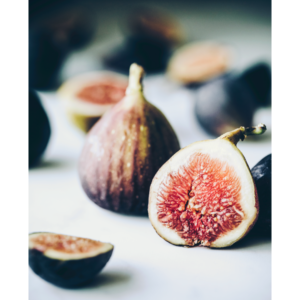
Before you enter the Belize Friends’ Center (BFC) in the South Side of Belize City, Belize, every visitor is greeted by these words “Bridging the Gap Between Today and Possibilities”. Currently, the South Side is so different from when I grew up there. It is now known for gangs and families with young women, who at the age of 12-13 years old, after they have finished elementary (middle) school, feel at times they have no choice than to move into a life of prostitution. You see, in Belize, in order to be admitted into high school, every child must take an elementary school exit exam. As someone who went through this process, it can be stressful if one is not prepared for it. Those who fail the exam, cannot move forward to high school. At this point, this is where the Belize Friends’ School step in. The school offers community integration and study, to help those children who failed the exam, be more ready to retake it.
Howard Thurman’s book Jesus and the Disinherited offers a view into a humanizing approach as the framework of existing and proceeding, toward an untied life. A life available to every man or woman who hunger for the transparent love of Jesus. Prior to offering his precise recommendations, Thurman reflected on apparent neglect pertaining to helping the needy. As follows:
To those who need profound succor and strength to enable them to live in the present with dignity and creativity, Christianity often has been sterile and of little avail. The conventional Christian word is muffled, confused, and vague. Too often the price exacted by society for security and respectability is that the Christian movement in its formal expression must be on the side of the strong against the weak (p.1).
Although written in 1949, the statements of Thurman in some instances still ring true to this day. From the beginning of Genesis and all the way through the Bible, we see people being persecuted and read of those who suffered for their faith. The ‘human’s will to share’ was just not that prevalent. Today in numerous communal settings, there are many who still suffer despite having faith, being involved in Christian community or have no faith at all.
So, to illuminate some of what’s above, I turn to Luke 13:6-9. In dividing this parable, it was imperative, I read the words preceding it with utmost attention. Each word filtered into what Jesus said, thereafter. As I move forward with this composition, I stride with great care. This care stems from many reasons, but mostly I now ask myself… How do I present this information as native thought and ensure it is indeed protected from others and duplicated with original citation? I often grapple with this and believe this stems from my experiences in academic writing…to give credit where it is due. As much as I complain sometimes about all the papers I must write, I am thankful for the instilled discipline this process provides me.
God has given me so much He wants me to share. I meditate on scriptures, which often produces deeper and rich meanings. I really prefer this method of teaching and of learning. My approach I embrace as a contrast to the process of other expositors. And, I am glad for it!
The inclination and message to move forward has just been given to me by God. Therefore, I now return to the verse above.
The self-complacency of the people Jesus addressed were evident from the way they spoke of the Galileans. They were oblivious about their own wrong doings. But Jesus set them straight. He owned His dispensation! As Jesus continued, He the ‘seed’ and the ‘sower’ (Jeremiah 31:27), discussed the proprietor of the vineyard. He said the fig tree was planted. We see in Deuteronomy 22:9 that the seed of a fig tree was not ordinary! The seed was planted in a specific area of the vineyard. It was protected and cared for. As the vineyard (Israel) was honored and loved by God (Isaiah 5:7).
The proprietor waited three years for the fig tree to bear fruit, and every year he was disappointed. Finally, he told his gardener to ‘cut it down’. The vine keeper asked the proprietor to spare the tree and to give it one more year.

Jesus in His ministry, spent just around three years in Israel, God’s vineyard. He sought to make Israel bear fruit. The production of fruits appeared promising in some moments, yet; these promising effects always reverted to sin, coupled with complete rejection from God’s people. Just like the same vineyard that rejected the fig tree! The tree grew, but without the application of Christ-like nutrients from the soil (the souls of the people of Israel), it could not be fruitful.
Some scholars also believe the three years Jesus discussed, were depictions of Moses, the prophets, and He, Himself. The stories of Moses and the prophets, offer me the most beautiful ensamples of Christ. Jesus longed for fruits from the people of Israel, the same desire for fruit from God, is outlined in Isaiah 5:1-7, the prophet of hope. Like God, instead of fruits, Jesus alternatively received disappointments, not reverence.
One more year to nurture the tree and bring it back to life…postulates Jesus’ hesitancy to walk away from God’s vineyard. We read of the acceptable year of the Lord in Isaiah 61:2. Jesus the ultimate intercessor, who like the keeper of the vineyard, prayed and asked God to spare His people, and to spare, himself, He…the son of God . He simply wanted more time to help them.
Cut it down!
The fruitless tree, the one, which when cultivated by Our Lord, still did not bear fruit. It dismissed gorgeous, heavenly love, shown by Jesus.
If this is not a warning even in today’s times, I really don’t know what is.
Lessons from this parable:
- The immensity of the honor of those who sow the seed, and of those who willingly accept it.
- We all have our own innate responsibilities when we accept the honorable seed of Christ.
- No real home is given to our brothers and sisters who choose to casually listen (Hebrews 3:4).
- The finality of consistently sowing the seed of Christ, is enormous.
Jesus’ love remains…
Because His love is the cornerstone of BFC, when a fig seed is planted in its vineyard, the seed produces fruit displayed in the success of its students. Their backs are no longer to the wall, showcasing a perfect example of what happens when the strong supports the weak. Additionally, the fruits are fed to the parents of these young people and the seeds of these fruits are replanted and multiplied. Positive-driven life choices are plentiful! Divine mercy, adherence, understanding, and reverence, are indeed… most visibly there.
Our ministry looks forward to our partnership with BFC in envisioning and living out the full possibilities of Jesus.
We give thanks to God.
With love,
Charlotte
Book Source: Thurman, H. (1949). Jesus and the disinherited. Boston, MA: Beacon Press